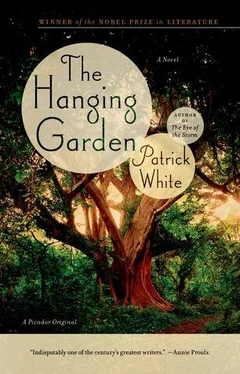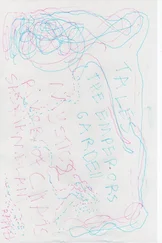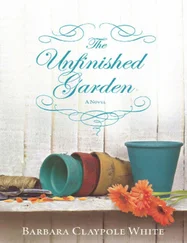* * *
As she escaped from the saloni , the woman who was taking possession of her is asking Mamma whether ‘little Irene has a good supply of warm Combies.’ Mamma’s voice was dry, terse. ‘Eirene has next to nothing,’ she says proudly. At the best of times Mamma could take no interest in a child’s underclothes. Least of all when they bundled a few things together in a hurry and were driven to meet the motor boat, driven through streets through road blocks, through walls of darkness to the meeting place. The motor boat made the sound stream. The air streamed. Mamma standing in the bows, is watching the last of tears and starlight, she is crying.
* * *
A young officer playing with your neck says you must call him Giles. Another of the men, his dark form puts an arm round Mamma’s shoulders. Everybody is behaving with exaggerated kindness. Giles’s soft man’s voice: ‘… a tough little thing, I’d say…’ I turn my face. It is dark, but starlight catches tears. All the men respect Mamma, crying for Greece, Papa, herself. Falling asleep I wake in someone’s rough hairy overcoat, the wind has died, it is suffocating. You can smell what they say is the desert. We are tramping through sand, under fig trees. The men spread out now that they are free. You can’t tell Giles from any of the others. Because I am her child Mamma takes my nearest hand, with the other I tear off a twig, the warm sticky moonlit fig milk trickling through fingers.
Mamma’s foreign sounding, proud voice is sucked back into the retreating house.
‘Of course, Mrs Bulpit, you shall be provided with money for anything Eirene needs. Who would have thought of woollen combinations escaping from the Germans.’
‘… hard to imagine…’ the woman was excusing herself.
Mamma had won her trick.
* * *
The house has become stationary now. Will the boy appear round a corner or through a wall to challenge my ownership? Because it is already mine. It smells of mushrooms and dust, it is alive with the thoughts I am putting into it. Doorknobs are plasticine to my hand. I could climb into this cupboard and mingle with a dead man’s clothes if they didn’t smell so nasty-dead.
The house is large enough to run through. Everything shakes, like the earthquake that year on the island, only the drawers do not slither out, lolling like wooden tongues. But a sudden stillness. I am standing in this great room protruding as far as the edge of a cliff. It has been waiting for me: not so still, it is tremulous. I paddle in pools of pale light in the gritty carpet. Are they traps? Is the room a trap? And outside, the suckers of each tree reaching out from the Royal Gardens which Great Aunt Cleone Tipaldou still refers to as the National Park.
‘Don’t touch, don’t push, Eirinitsa.’ Aunt Cleone’s voice sounds perilously frail in this great room, empty in spite of its heavy groaning furniture. The skittering furniture which fills Cleonaki’s small saloni , her books, her photographs of brothers and sisters, and those of President Venizelos (signed) and the Archimandrite — all must be treated like invalids. Not this lumpish chest in the house which is to become mine, I can hit it if I like, and do. Hit. Hit. I must hit someone —or burst out crying. Will the boy come and find me? I have never known boys.
Men have a different smell, even the younger ones like Giles, paddling his fingers in my neck. Would my neck be sharp enough to cut off the fingers if I closed on them? Dreamy fingers. This man leaning out from the wall ‘my husband Mr Bulpit’ has thick meaty fingers, smelling of tobacco leaves, and pockets in the face where a razor can hardly enter, or the dimple in a chin, dark at the centre like a navel, and the warrant officer’s arms glow like a butcher’s shop. The moustache, darker in a blond face, almost drops. He could have varnished his moustache before he left for the photograph. Or is it blood? There is nothing to fear, now he is dead. I am the live one, so hungry I could eat a plate of meat— chirino, stifatho, brizoles —stuff it in — bones and all. The wife and Mamma too busy talking money and woollen underclothes to notice. Only the boy will watch. Is he already watching? On this ugly chest a dry wishbone. Drag on this sticky knob and the drawer grinds, hits me in the breast. There is a snotty string spreading on the handkerchiefs, one of them used. Yes, I am watched. It is his room.
* * *
All the house, the garden, must belong to one or other of them. There was nothing they could possibly share, the girl knew as the rotten, ricketty steps allowed her access to her garden. It was hers, like the past, those memories of the Royal or National Garden, whichever way you look at it — nothing could destroy her. She must ferret out this boy if he would not face her, and make it clear.
Then she was looking up into the heart of this black tree, her face held flat like an empty plate and his boy’s face slanted above her from looking down empty-eyed into her other emptiness. There was no question of how they might fill the silence. The moment before it might have smashed to smithereens below, or dissolved in a stream of spittle from the tree into her mouth, instead the voice floated from out of the house light and girlish as nobody had heard, ‘Come away, Irene — Gilbert! Children? Something lovely for your tea…’
* * *
They were all three seated round the large black shiny table of a dining room you could tell was seldom used because so much was on display, dishes standing on their edges, silver for a wedding, a clock which had stopped between marble columns below a pediment (Greek in fact) the air unbreathed, cleaner than in any of the other dustier, used rooms, the two children heads bowed, the boy playing with cutlery the girl tracing the pattern (or was it her fate?) in a tea-dipped crochet doiley, ‘Madame’ Sklavos staring ahead with a smile of disbelief as they waited for their hostess to bring whatever she had for them.
Madame Sklavos sighed and still smiling her disbelieving smile suggested ‘I expect you miss Mother and Father, Gilbert.’
The boy grunted and raised a shoulder. Because it was only one of those questions they ask children, he did not bother to tell her Mother was dead.
The boy’s hair was as pale gold as she had been told, Madame Sklavos noticed. Blond men left her unmoved.
‘Don’t you think you ought to leave that doily alone, Eirene? You might unpick it.’
She spoke with distaste either for the ugly lace, her dark child, the blond boy, the situation in the dining room, or the whole of life stretching out of and away from the house on the precipice.
‘Doiley…’ Eirene muttered a new word.
She gave the flat mat a pat or slap. The cutlery on either side of it clattered alarmingly.
Their hostess saved the situation. ‘… Hope you like it!’ she half-panted, half-giggled from the kitchen. Forestalling the person her words hung in the dining room surrounded by a black line like what they say in a cartoon.
When Mrs Bulpit appeared she was wearing a pair of asbestos gloves halfway up her marzipan arms, her figure stooped out of proportion to the size and weight of the battered pie-dish she was carrying.
‘It’s salmon pie’ she told them, slapping the pie-dish on the sideboard and then seeming to wonder whether the hot aluminium had marked the varnish.
Madame Sklavos was more than ever disbelieving, her chin tilted in that way of hers. Eirene more interested, for something foreign, but Gil Horsfall, a man amongst so many women, gloomed and refused to show what he thought of salmon pies. Mrs Bulpit’s smile had got smeared in the kitchen. Parted from the not so heavy pie-dish she remained humped between the shoulders. There was a smear of sauce on the black dressmaker’s dummy bust. But she remained the optimist.
Читать дальше












